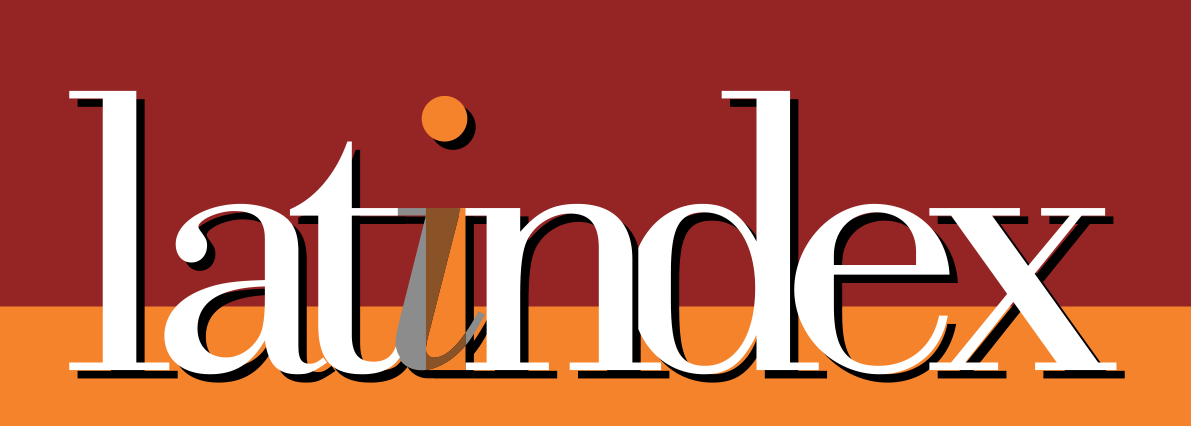THE LEGITIMACY OF JUDICIAL DECISION-MAKING AND ARTIFICIAL INTELLIGENCE
DOI:
https://doi.org/10.63835/mw15x539Keywords:
Artificial intelligence; Judicial activism; Legitimacy.Abstract
The article analyzes the interaction between Artificial Intelligence (AI) and the Judiciary, with an emphasis on the legitimacy of judicial decisions and the prevention of judicial activism. Its objective is to assess how AI can assist in forming more objective and coherent decisions without compromising the autonomy and responsibility of judges. The research adopts an analytical and exploratory methodology, based on doctrinal and normative review, as well as the examination of concrete cases, to investigate the ethical, legal, and hermeneutical limits of AI use in judicial activity. The results indicate that AI can contribute to the organization and systematization of arguments, promoting predictability and legal certainty, provided that it remains under constant human supervision. It is evident that the legitimacy of decisions depends on the transparency, explainability, and constitutional conformity of automated processes. The study concludes that AI should act as an auxiliary tool for judges, not as a substitute, preserving the interpretative function and ethical sensitivity of the decision-maker. It recommends the creation of national protocols for AI use in the Judiciary and the training of judges in ethics and technology to balance technical efficiency with democratic responsibility, ensuring fair, transparent, and socially legitimate decisions.
Downloads
References
AMARAL JÚNIOR, José Levi Mello do. Interpretação e aplicação das normas constitucionais: entre deferência e ativismo, o rigoroso apego à democracia representativa. Revista de Informação Legislativa: RIL, Brasília, DF, v. 59, n. 235, p. 11 41, jul./set. 2022. Disponível em: https://www12.senado.leg.br/ril/edicoes/59/235/ril_v59_n235_p11
ARRUDA, Carmen Silvia Lima de. O princípio da transparência. São Paulo: Quartier Latin, 2020.
BARROSO, Luís Roberto. Judicialização, Ativismo Judicial e Legitimidade Democrática. (SYN)THESIS, Rio de Janeiro, v. 5, n. 1, p. 23–32, 2012. Disponível em: https://www.e-publicacoes.uerj.br/synthesis/article/view/7433. Acesso em: 14 nov. 2024.
CASADO, Gabriela Patriota. Território estrangeiro: uma análise sobre a proteção dos direitos dos refugiados LGBTQI+ no Brasil, São Paulo: Editora Dialética, 2024.
CASTELLO BRANCO, Carolina; SANTIAGO, N. E. A. Ativismo judicial e a instrumentalidade do processo: um diálogo com Georges Abboud e Guilherme Lunelli a partir da obra de Cândido Rangel Dinamarco. Revista Quaestio Iuris, Rio de Janeiro, v. 13, n. 2, 2020, p. 981-1004
CAPPELLETTI, Mauro. Juízes Legisladores? [Tradução: Carlos Alberto Álvaro de Oliveira]. Porto Alegre: Sérgio Antonio Fabris Editor, 1993.
FERRAJOLI, Luigi. Constitucionalismo principialista e constitucionalismo garantista. Trad. André Karam Trindade. In: FERRAJOLI, Luigi; STRECK, Lênio Luis; KARAN, André Trindade (Org.). Garantismo, hermenêutica e (neo)constitucionalismo: um debate com Luigi Ferrajoli. Porto Alegre: Livraria do Advogado, 2012.
GADELHA, Ingrid; MEDEIROS, Isaac. Padronização de ementas judiciais e a IA, JOTA, publicado em 08/10/2024, Disponível em: https://www.jota.info/artigos/padronizacao-de-ementas-judiciais-e-a-ia?utm_campaign=jota_info_. Acesso em: 09/11/2024.
HEINEN, Juliano. Acesso à informação e seus “dois maridos”: duas leis em um mesmo tema – transparência e tratamento dos dados públicos. In: MOTTA, Fabrício; VALLE, Vanice Regina Lírio do (Coords.) Governo digital e a busca por inovação na Administração Pública: a Lei nº 14.129, de 29 de março de 2021, Belo Horizonte: Fórum, 2022, p. 171-184.
JORGE, Nagibe de Melo. Ativismo judicial, discricionariedade e controle: uma questão hermenêutica? Quaestio Iuris, Rio de Janeiro, v. 7, n. 2, 2014, p. 509-532.
LEMOS, André Luiz Martins. Erros, falhas e perturbações digitais em alucinações das IA generativas: tipologia, premissas e epistemologia da comunicação. MATRIZes, São Paulo, Brasil, v. 18, n. 1, p. 75–91, 2024. DOI: 10.11606/issn.1982-8160.v18i1p75-91. Disponível em: https://www.revistas.usp.br/matrizes/article/view/210892. Acesso em: 13 nov. 2024.
NOBRE JÚNIOR, E. P. Considerações sobre o princípio constitucional da impessoalidade administrativa: Considerations about the constitutional principle of administrative impersonality. Revista de Direito Administrativo e Infraestrutura | RDAI, São Paulo: Thomson Reuters | Livraria RT, v. 3, n. 9, p. 103–118, 2019.
POSNER, Richard A. The rise and fall of judicial self-restraint. In: California Law Review. Vol. 100. No. 3. June 2012. p.519-556.
STRECK, Lenio Luiz. Neoconstitucionalismo, positivismo e pós-positivismo. In: FERRAJOLI, Luigi; STRECK, Lênio Luis; KARAN, André Trindade (Org.). Garantismo, hermenêutica e (neo)constitucionalismo: um debate com Luigi Ferrajoli. Porto Alegre: Livraria do Advogado, 2012.
SUNSTEIN, Cass R.; VERMEULE, Adrian. Interpretation and Institutions. John M. Olin Program in Law and Economics Working Paper n. 156, 2002.
TASSINARI, Clarissa. O estado da arte da questão do ativismo judicial no contexto atual das teorias jurídicas e políticas. In: TASSINARI, Clarissa. Jurisdição e ativismo e judicial: limites da atuação do judiciário. Porto Alegre: Livraria do Advogado, 2013.
TOLEDO, Cláudia; PESSOA, Daniel Alves. O uso de inteligência artificial na tomada de decisão judicial. Revista de Investigações Constitucionais, [S. l.], v. 10, n. 1, p. e237, 2023. DOI: 10.5380/rinc.v10i1.86319. Disponível em: https://revistas.ufpr.br/rinc/article/view/e237. Acesso em: 2 nov. 2024.
TRINDADE, André Karam. Garantismo e decisão judicial. In: STRECK, Lenio Luiz (Org.). A discricionariedade nos sistemas jurídicos contemporâneos. Salvador. Editora Juspodivm. 2017. p. 75-104.
VALE, Luis Manoel Borges do; PEREIRA, João Sérgio dos Santos Soares. Teoria geral do processo tecnológico, São Paulo: Thomson Reuters Brasil, 2023.
VALLE, Vivian Lima López; FUENTES i GASÓ, Josep Ramón; AJUS, Attílio Martins. Decisão judicial assistida por inteligência artificial e o Sistema Victor do Supremo Tribunal Federal. Revista de Investigações Constitucionais, Curitiba, vol. 10, n. 2, e252, maio/ago. 2023. DOI: 10.5380/rinc.v10i2.92598
Downloads
Published
Issue
Section
License
Copyright (c) 2025 HÉLIO RIOS FERREIRA, Rômulo Marcel Souto dos Santos, João Araújo Monteiro Neto (Autor)

This work is licensed under a Creative Commons Attribution 4.0 International License.
Revista Juris Verdi uses the Creative Commons Attribution 4.0 International License (CC BY 4.0), which allows sharing and adaptation of the material for any purpose, including commercial use, provided that appropriate credit is given to the author(s). Authors retain publishing rights without restrictions, and articles remain available through open access.
Copyright Statement
The authors of the manuscript identified below declare that:
-
They agree to submit the article to Revista Juris Verdi;
-
They declare that the work is original, does not infringe upon third-party copyrights, and has neither been previously published nor is under evaluation by another journal;
-
They authorize, in the event of acceptance, the publication of the article under the Creative Commons Attribution 4.0 International License (CC BY 4.0), which permits use, sharing, adaptation, distribution, and reproduction in any medium or format, provided that proper credit is given to the author(s);
-
They acknowledge that copyright remains with the authors, who may also deposit the article in institutional repositories, personal websites, or academic social networks, as long as the original publication in the journal is properly cited;
-
They are aware that Revista Juris Verdi adopts an open access policy, committed to the democratization of scientific knowledge.










